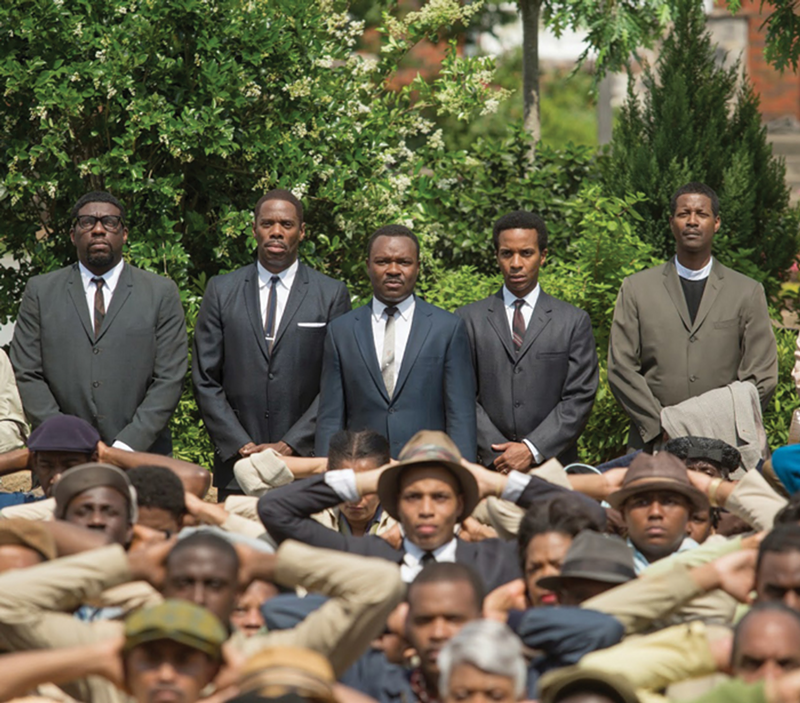The prestige season of 2014-15 at regional multiplexes and art house theaters has offered audiences an esteemed honor roll of names and stories for consideration — from the little-known pages of history (Unbroken, The Imitation Game), science (The Theory of Everything), the arts (Big Eyes), true crime pop psychology (Foxcatcher), the contemporary news cycle (Kill the Messenger, Rosewater) and personal memoir (Wild) — but there is a question of familiarity with the subjects. How well do we know the forgotten World War II heroes or the proto-pop artist at the birth of the scene? Did The Daily Show connection inherent in Jon Stewart’s Rosewater raise awareness in ticket buyers?
Out of the bunch, it would seem that Stephen Hawking might be the one to push the needle for the pop-culturally savvy filmgoers out there. He is our generation’s Einstein, whose face has graced screens and whose computer-generated voice has projected into our collective consciousness; The Theory of Everything grants us access into the life of the man behind those big ideas about time and everything. Of course, we get precious little of the theories; much more of the story is about the dynamic between Hawking (Eddie Redmayne) and his wife Jane (Felicity Jones).
What was missing — more intimate history, answers to the question of who these people were away from the big moments on the pages of the epic annals — is what separates these well-crafted and generally entertaining films from gaining a spot among the pantheon of classics (Lawrence of Arabia, Malcolm X).
Personal affairs should have played a larger role in the recounting of the experiences of Alan Turing (Benedict Cumberbatch) in The Imitation Game, more about the challenges Turing faced as a gay man in a society that sought to banish such men. He broke the Enigma code and charted the course for the development of computer technology, but he was unable to love and live freely and be known as a complete, complex human being.
Similarly, in Unbroken, Angelina Jolie starts out expertly utilizing flashbacks to create a portrait of Louis Zamperini (the Olympic runner and World War II veteran), yet once fate strands him at sea, setting the stage for a horrific prisoner of war ordeal in a Japanese camp, she dismisses the backstory interludes, in effect trapping the audience in the physically and psychologically devastating situation of brutal torture that she believes defines him. I would argue, though, that the man was far more than the platitude-spouting cardboard cutout and more investment in his past would have fleshed out his resilience better.
In the end, these films highlight the greater achievement in Ava DuVernay’s Selma, which presents a figure we believe we know all too well. Dr. Martin Luther King Jr. is the face and voice of the non-violent Civil Rights Movement, the only non-president with a national holiday in his honor. We know his passion, his Dream. His stern yet kindly visage stared back at many of us from the walls of our parents and grandparents’ living rooms. We recall the hushed whispers of the fallibility of the man, which makes the task of recreating some version of him seem all but impossible.
And yet, in David Oyelowo, a black Brit with theatrical training, we get the King we deserve. The aim here was not imitation or impersonation. To capture his spirit meant willingly embracing the imperfection within performance. It was about seeking to live and breathe inside the moments, and the moments DuVernay sought to portray were intimate and realized on a smaller scale.
On a deeper thematic level, Selma also affords us the chance to appreciate that King and the Movement suffered through an inordinate amount of internal questioning and doubt. With distance and perspective, we sometimes look back on these times and imagine that King always knew what was right and made the appropriate decisions in those nerve-wracking moments when lives and the historical record were on the line. We (and here I willingly include myself and own up to my own bias), when seeking comparisons to our still-tumultuous and divisive racial climate, gaze upon that exalted pedestal we’ve erected to King and bemoan the lack of steadfast leadership and moral guidance, without acknowledging the many failings and poor judgment that existed during those times as well.
Selma captures the life and times of a movement distilled down to a chapter in one man’s journey, but the real accomplishment comes thanks to the determination to break the standard biopic mold and render the imperfections and frailties that we are far more familiar with from our own experiences.
CONTACT TT STERN-ENZI:
[email protected]






